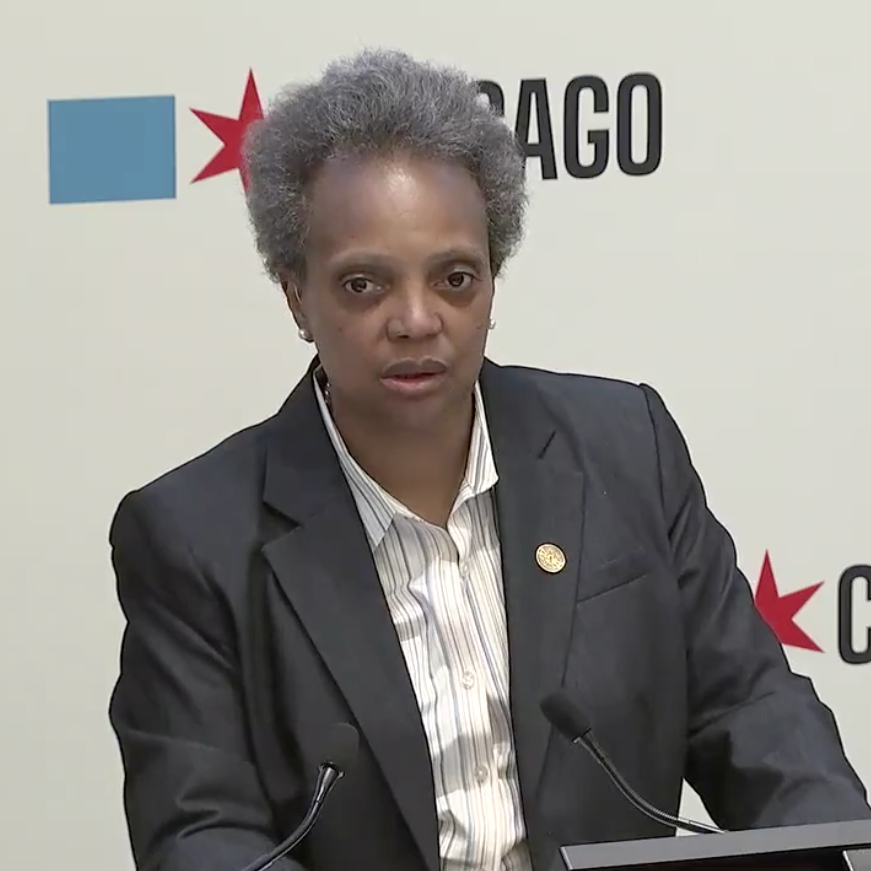The entire Chicagoland public transportation system has only semi-functional or completely shut down during the current civil unrest in response to the recent police murder of George Floyd in Minneapolis. As of this morning, the CTA was not serving the central city, Pace was limiting some service, and Metra and Divvy bike-share were completely shut down.
Yesterday Streetsblog writer Courtney Cobbs argued that the transit shutdown will hurt vulnerable people the most, by making it difficult or impossible for them to make essential trips. "In a city where plenty of people’s transit commutes are well over an hour, it was incredibly irresponsible to suspend service with little warning. CTA ridership is largely made up of low-income and working-class residents, and people of color. These are the people who were most impacted."
The Active Transportation Alliance has taken a similar position, and today they launched a petition to reopen Chicagoland transit and Divvy. "Balancing the need to maintain public safety while protecting the rights of residents is a complex task under normal circumstances, let alone during a global pandemic. However, we urge the City of Chicago and transit agencies work to fully restore transit and Divvy service immediately... Shutting down the entire system, or access to large parts of the city, is destabilizing."
At this morning's press conference, Streetsblog Chicago asked Mayor Lori Lightfoot about ATA's statement and petition. Here's her response.
Look, obviously shutting down a transit system is not something that we take lightly. We're the only transit system in the country that [has run] at full service throughout COVID-19.
But I also know that we have a responsibility to keep those workers safe. And I had repeated conversations through the course of the day with union leaders from the Amalgamated Transit Union who were concerned about the safety of their employees, both bus and rail. And unfortunately, as we've seen... people trying to commandeer buses, threatening bus drivers. We've seen out transit system be used by people who want to commit violent acts, criminal acts. And what I was also hearing from [CTA president Dorval Carter Jr.] is that they didn't know that they would actually have enough people to run the system at night and overnight.
So we need to make sure that we're being smart about how we use any public resources, but the first priority has to be making sure that those employees are safe. What would I be if I was ignoring the pleas of employees who are fearful, and hearing from the head of the CTA that he was concerned about the ability to safeguard passengers and employees?
That's why we took that very serious action. We did not do that lightly. We won't do that lightly if we need to again. But if those same combustable circumstances align, I'm not going to hesitate to do what's necessary to keep the transit system safe.
We've had a lot of vandalism [at] our transit stations, which is unfortunate. And we know, of course, that people use the transit system.
You ask about Divvy. Now that's a decision that Divvy made itself but, again, unfortunately we're seeing people who were roaming neighborhoods looting, fighting, and doing all sorts of criminal activity riding around on Divvy bikes. So Divvy did a lockdown, and I was grateful for it.
A spokesperson for Lightfoot later clarified that "the city was working in partnership with Divvy, which had already started pulling some of its bikes out of the Central Business District when we strongly encouraged them to shut down the system. But ultimately it was Divvy's decision."
So I'm hoping that as we move into better days that we'll be able to resume. But to pretend and ignore the circumstances on the ground, and how these seemingly benign resources are being used to further criminal conduct, I can't ignore that, I can't turn a blind eye.
And I appreciate the Active [Transportation] Alliance, they are a great and important voice on mobility issues in our city, but again, just as I'm asking I'm asking the media to get the context, I'm asking those folks, those advocates, to also get the facts and understand the context.
None of these decisions are easy. Not one. None of them will be easy for the foreseeable future. But the voters elected me to make the right calls, the tough calls, and not pander to the crowd, but to do what I thought was best based on the best information and listening to the experts that I have around me and listen to the voices of the residents who are hurting and are in need, and that's what I will continue to do.





